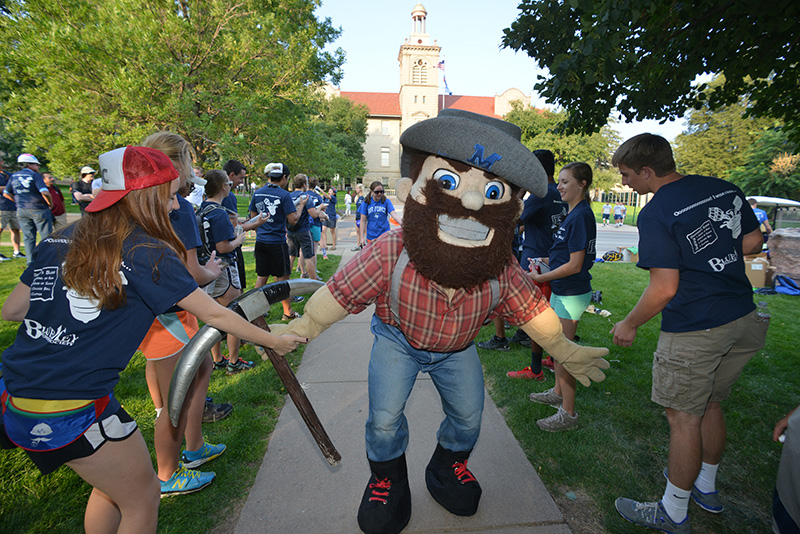Suggestions for Improving Campus Culture Through Teaching
 Connect early and regularly with students; be responsive and approachable
Connect early and regularly with students; be responsive and approachable
- Genuinely care about the well-being and success of our students and show it…make sure your actions align with your words.
- Encourage student questions—say “Good question” or “Thanks for asking that.”
- Learn students’ names and use them in and out of class and/or the office.
- Whenever possible, notice when students are not showing up to class or show other signs of distress. Talk to them and share concerns with the CARE team (mines.edu/care).
- Smile at them and say hello when you see students outside of class.
- Be at all of your regular weekly office hours, ready and happy to help students.
- Try to meet the student on their terms when you can – hold office hours somewhere other than your office; allow for appointments; be willing to discuss things other than class.
Humanize yourself
- Openly admit your own mistakes; use them to teach positive response to “failure”.
- Say “I don’t know” when you don’t; then figure it out if you can and answer next time.
- Offer appropriate life lessons to students to supplement course content.
- Hold a “sixth office hour” where students can teach YOU something of interest to them.
- Bring fun, joy and, laughter to the class, be lighthearted.

Recognize how great our students are and be supportive and kind
- Remember what it was like for you to be a student, and recognize you were likely one of the top students.
- Realize that even our middle and bottom students are highly intelligent and capable and we should challenge ourselves to succeed at educating them
- Realize that students have jobs, family/relationship issues, traumas, insecurities…just like we do.
- Be quick to praise and slow to criticize.
- The more difficult your course, the more important it is that you be supportive, kind, approachable, helpful…measure your success by their success.
Be organized, have reasonable and clear expectations, assess fairly
- Set clear expectations and schedules for them and for yourself and stick to them.
- Work your own assignments or at least know the solutions to them well.
- Train your TA’s/graders well to help.
- Make sure grading is accurate and consistent (by you and graders).
- Coordinate with others to even out student work load whenever possible.
- Make accommodations for students when “life happens” at your own discretion.
Model and encourage positive and constructive conversation
- Celebrate last week’s successes, healthy choices, activities: both academic and non-academic; both theirs and yours
- When you have issues, suggest ideas for positive change instead of complaining.
- Hear student issues, ask for constructive suggestions, consider making changes.
- Invite students to share what is on their mind regarding class, campus and life.